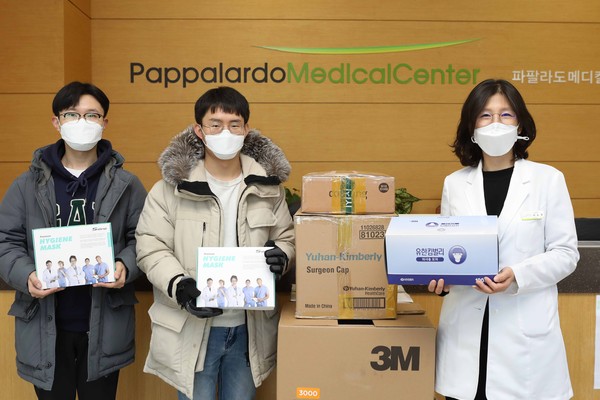On March 4, the Chinese community at KAIST donated personal protective gear to the KAIST Clinic Pappalardo Center. With the help of International Scholar and Student Services (ISSS), the donated equipment was later sent to the Division of Disaster Preparedness and Emergency Management at the Daegu Metropolitan Government Office in Daegu, which has been designated as a special management zone by the Korean government. The donation was made to support the city’s measures to curb the spread of the COVID-19 virus after an outbreak occurred in mid-February. The donated supplies were worth nearly 2.5 million KRW in total, and included 1,280 protective caps, 57 protective suits, 15 protective glasses, and two protective face shields. Dr. Yung-Jung Lee, the executive director of the KAIST Clinic Pappalardo Center, expressed a huge “thank you” to the KAIST Chinese community for their help in “this national and global crisis”.

The donation originated from a fundraising campaign suggested by Yuewen Jia, a master’s student from the Department of Civil and Environmental Engineering, in the KAIST Chinese community’s WeChat chat room following the rapid growth of COVID-19 outbreak in China. Jia’s idea was met with enthusiastic support, and her post-doc colleague, Pei Li, volunteered to manage the fundraising process. Within 12 days from January 27 to February 7, a total of 2.49 million KRW was raised for the cause.
The community, composed of 105 undergraduates, graduates, post-doctoral fellows, researchers, and professors, used the funds gathered to order personal protective equipment online. The goods purchased were originally intended to be delivered back to China; however, the community decided to use them immediately in Korea instead after the rapid surge in COVID-19 cases across Korea.
According to Guoyuan An, a master’s student from the School of Computing, the donation represents an act of gratitude from the Chinese community’s part. During the early stages of the COVID-19 pandemic, the Korean government and society had given a lot of help to Chinese people. Now that Korean healthcare workers are in need of protective medical supplies, An believed that it was the Chinese people’s obligation to help them. He likened it to the old Chinese proverb, “A drop of water shall be returned with a rushing river”, meaning that if we receive a little help from others, we should return the favor to the best of our ability when others are in need.
An further emphasized that there should be no segregation among countries in face of the COVID-19 outbreak, since the disease itself is the common enemy. There is no difference among countries and helping one another is essentially helping ourselves. Finally, An also expressed his appreciation to all the staff from ISSS and the Task Force team, who had spared no efforts to help Chinese students during their self-quarantine period. Thanks to their care and attention, all of the students could return to campus safely.

